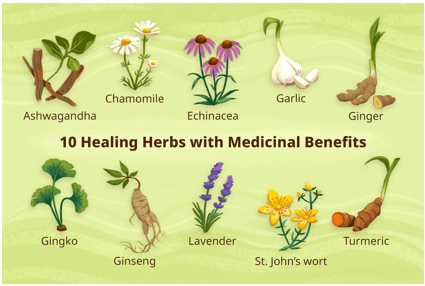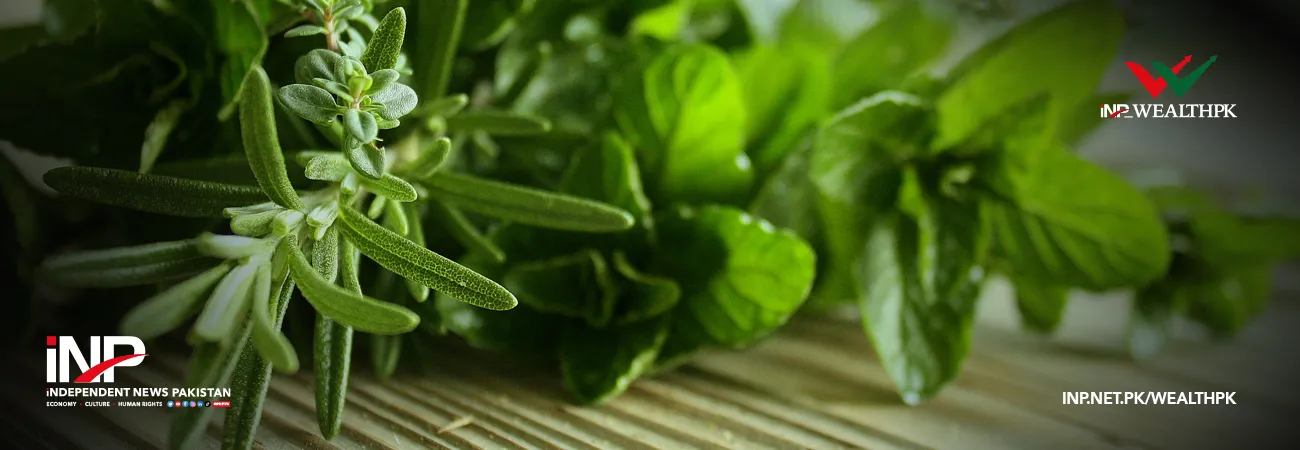INP-WealthPk
Azeem Ahmed Khan
Medicinal herbs can significantly contribute to Pakistan’s economy. Yet, this sector remains neglected owing to the farmers’ lack of awareness about the available lucrative opportunities, Chief Executive Officer (CEO) of Pamico Technologies Muhammad Arshad told WealthPK.

The demand for herbal medicines continues to rise globally for treating different diseases and their application in cosmetics. “This sector holds immense potential for sustainable economic growth, yet it has been overlooked in Pakistan,” he noted. Only a few companies produce selected herbal products, failing to meet the market demand. Arshad emphasized that both developed and developing countries have increasingly turned to herbal medicines for medical treatment and cosmetic applications.
Citing statistics from Fortune Business Insights (FBI), he highlighted that the global herbal medicines market, valued at $233.08 billion in 2024, was expected to grow from $251.25 billion in 2025 to $437 billion by 2032, reflecting a compound annual growth rate of 8.23% during the forecast period. Rising consumption of processed and ready-made foods has contributed to an increase in chronic diseases such as diabetes, obesity, and heart ailments, he said.
“This trend is expected to further drive growth in the herbal medicine market,” he added. According to FBI, he said, Europe led the global herbal medicine market in 2024 with a 44.55% share, driven by its dominant cosmetics industry. Similarly, the United States is projected to reach a market size of $37.90 billion by 2032, fueled by increasing consumer awareness and a shift toward natural care products, he added. The world has become a global village, offering access to all the 8 billion people on this planet sans physical borders, Arshad noted.
Anyone who establishes a niche in any country can tap into the global market, he said. As the demand for medicinal plants continues to grow, he urged Pakistani farmers to cultivate them to meet the rising global needs. The major use of herbal medicines is for health promotion and therapy for chronic diseases, as opposed to the life-threatening diseases, he said. However, the usage of traditional remedies increases when conventional medicine is ineffective in the treatment of disease, such as in advanced cancer and in the face of new infectious diseases, he added.
Explaining the nature of herbal medicines, Arshad said these remedies were derived from plant roots, stems, leaves, flowers, or seeds to enhance immunity or treat diseases. He cited ginseng, ginger, turmeric, aloe vera, tulsi, and clove as some popular medicinal herbs. There is a need to promote the production of herbal medicinal ingredients like curcumin from turmeric, allicine from garlic and Sea Buckthorn berries of Gilgit, he said. He highlighted Ashwagandha, known as the subcontinent’s ginseng, as a versatile medicinal herb.
All parts of the plant possess medicinal properties and are used in drug preparation, with its roots primarily processed into vital tonics, he added. Expressing the need to raise awareness about the importance of this sector, he said, Pakistan’s diverse altitudes, ranging from 0 to 8,611 meters, create various climatic zones that support about 600 types of medicinal plants. Owing to little awareness, Arshad pointed out, the sector operates on a very small scale.
“We must scale it up with the support of financial and research institutions, as well as agronomists who can identify the best areas for herb cultivation.” Pakistan’s technological companies possess the expertise to extract herbal medicinal plant essences and essential oils, and conduct drying, grinding, and blending processes to enhance their value, Arshad said. “The technology for processing medicinal crops is simple, and local companies are manufacturing extraction plants,” he noted. These facilities can also produce tablets, capsules, and syrups from herbal extracts.
Credit: INP-WealthPk




